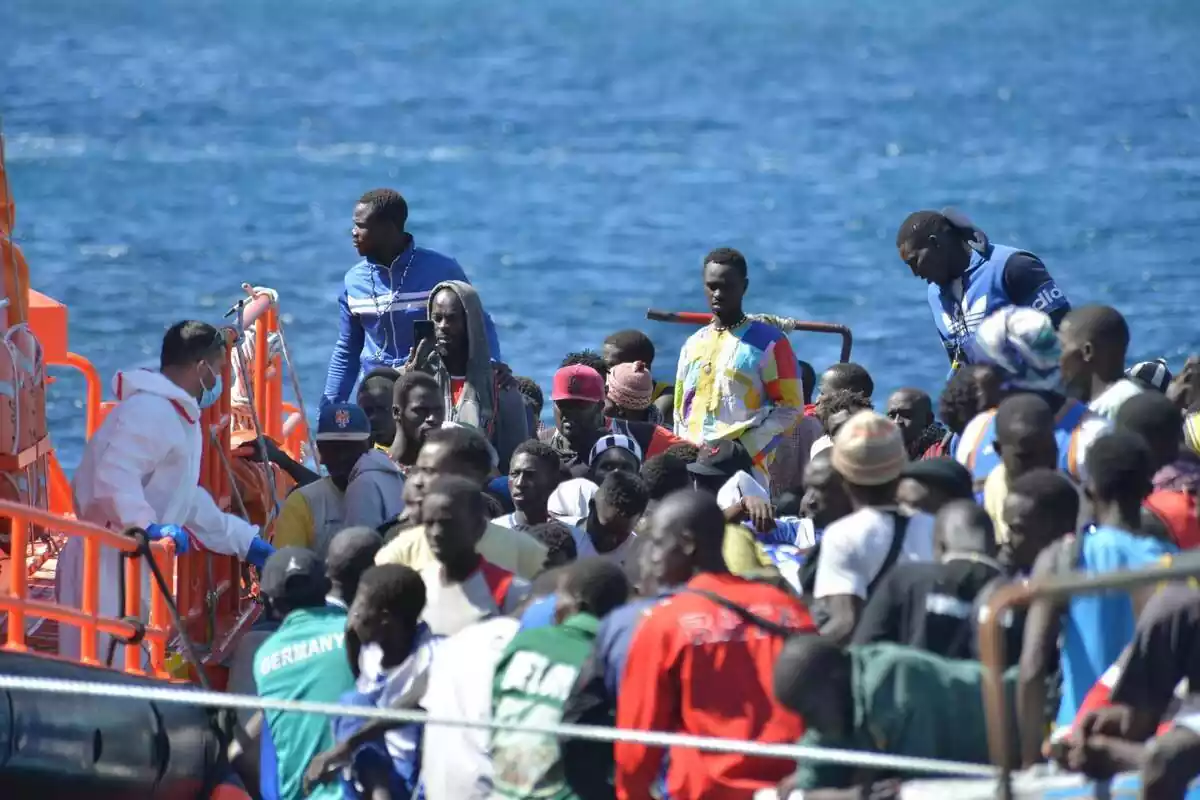
Migration crisis in Spain: is the worst yet to come?
Immigration is a geopolitical tool that governments and mafias use against Europe's interests
Spain faces growing migratory pressure that doesn't seem likely to be solved. The country has become one of the main destinations for migrants, especially via the Canary route, one of the most critical points in the EU. Experts and international agencies warn that the situation could worsen due to geopolitical factors. Among these, the growing influence of Russia in Africa and the cuts in humanitarian aid by the United States stand out.
The Canary route and geopolitical challenges
The European Border Agency (Frontex) has identified an increasing risk on the migratory route to the Canary Islands. The Sahel region in Africa is experiencing a security and humanitarian crisis that is pushing thousands of people to migrate. Frontex warns that this flow could intensify, especially due to instability in countries such as Mali, Burkina Faso, and Niger.
What makes the scenario even more complicated is Russia's influence in the region. According to Frontex, the country is expanding its presence, especially through private military companies. Russia could use this growing influence to drive migratory flows toward Europe as a tool to increase the costs of cooperation between the EU and African countries.

Another factor that could worsen the situation is the United States' policy of cutting humanitarian aid. In recent years, the Trump administration substantially cut funds allocated to aid programs in Africa. According to Frontex, this decrease has left power vacuums in several African countries, which has allowed mafias to exploit the situation. This generates even more chaos, which in turn results in more outward flows.
An uncertain outlook
The migratory flow to Spain is already at alarming levels. According to data from the Bank of Spain, the country receives more immigrants in proportion to its population than any other country in Europe. In 2023, 24 immigrants arrived for every 1,000 inhabitants (24 per thousand inhabitants), a figure that far exceeds that of other European Union countries. However, this phenomenon could intensify even further due to the aforementioned geopolitical factors.

With the situation in the Sahel worsening and the impact of international policies, the future of the migration crisis in Spain remains uncertain. In addition, this is compounded by a glaring absence of a state migration policy. On the contrary, the state is engaged in massive regularizations, via ILP, which only serve to buy time. Moreover, they act as a powerful pull factor.
More posts: